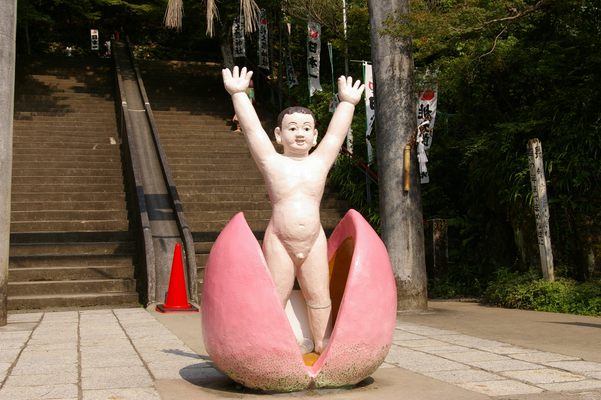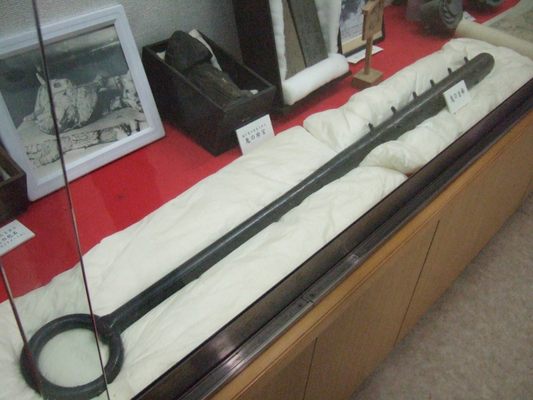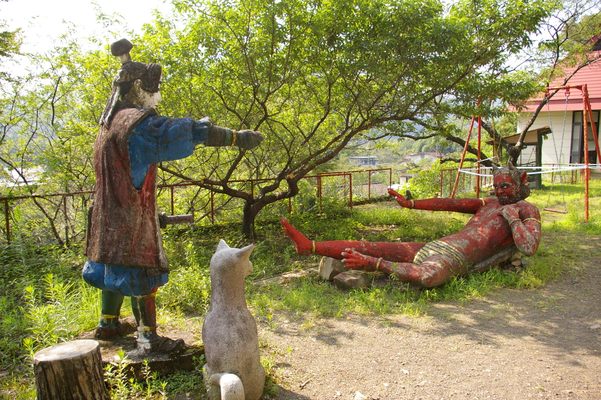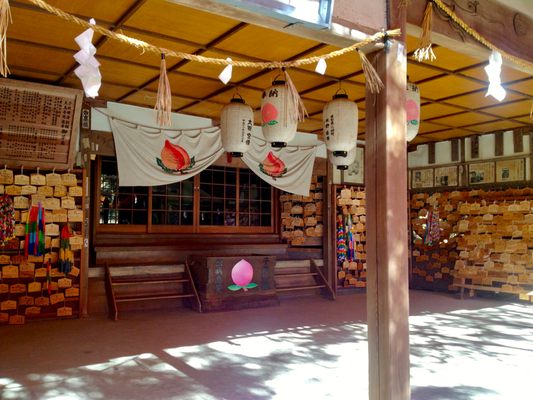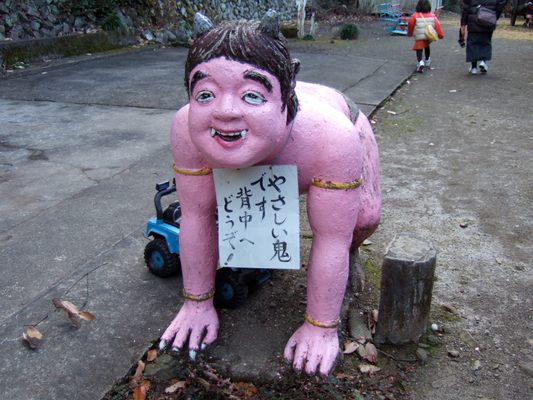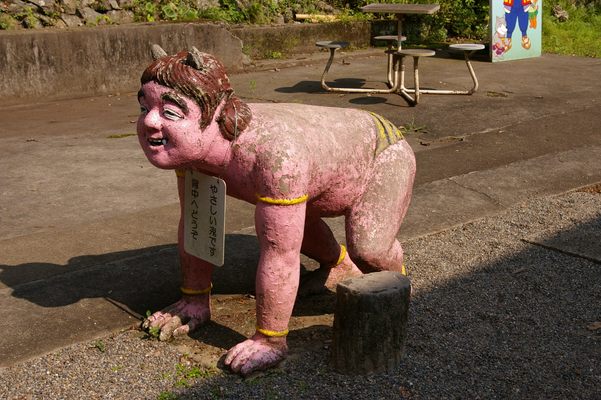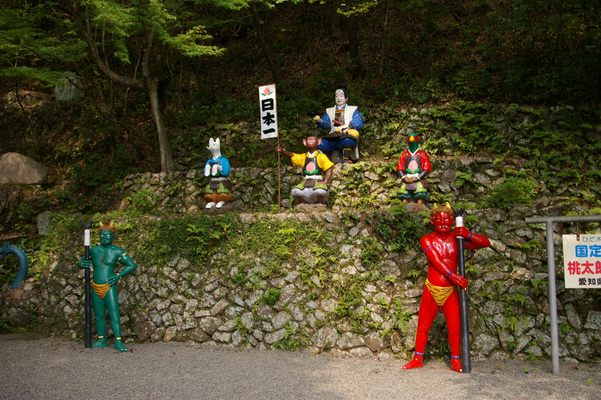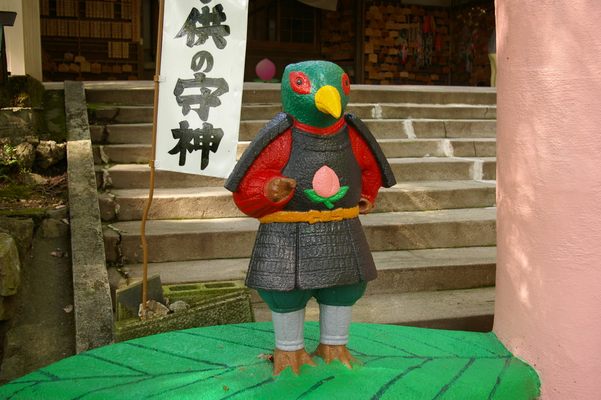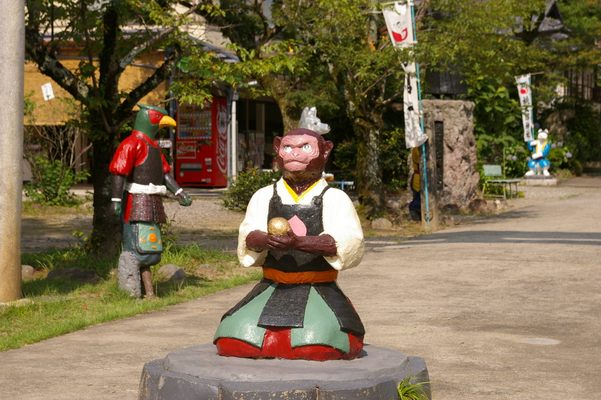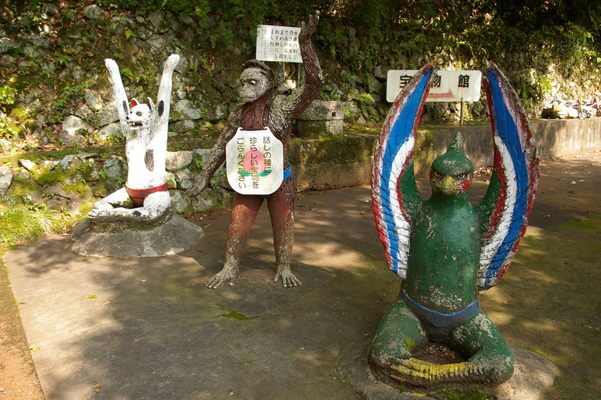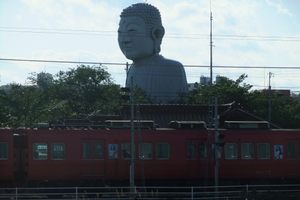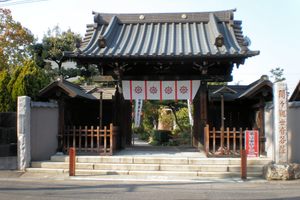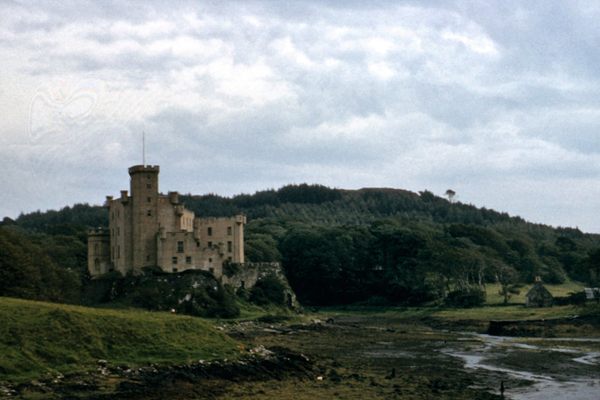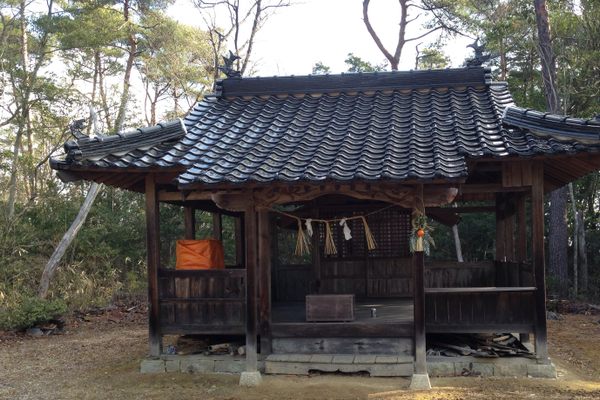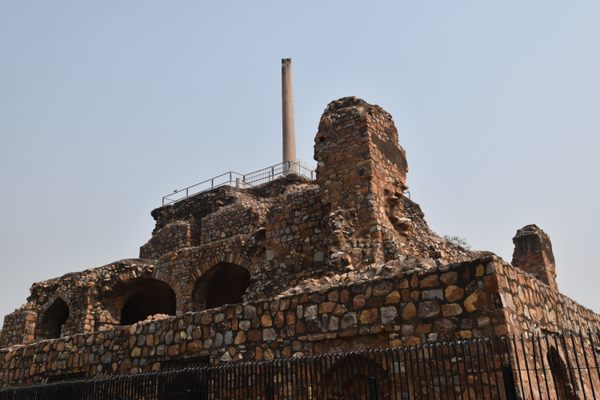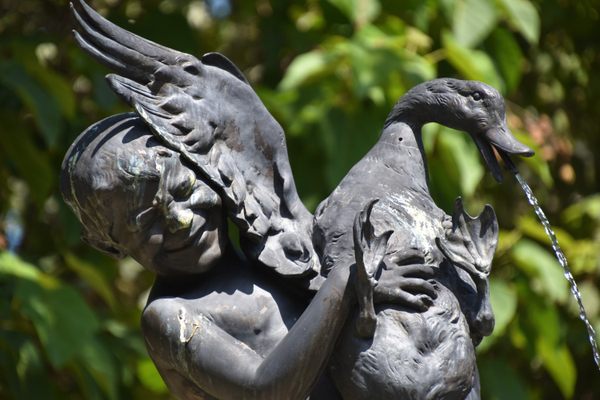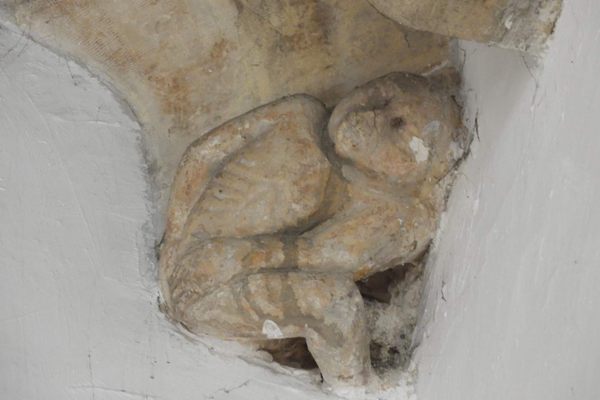About
Momotarō, also known as the Peach Boy, is one of the most famous characters in Japanese folklore.
In most versions, he is born out of a giant peach and raised by an elderly couple until he grows into a strong young boy. With a bag full of kibi-dango (sweet millet dumpling) made by his foster mother, Momotarō sets off on a quest to fight a marauding horde of Oni, mythological ogre-demons. He gave some of the dumplings to a dog, a pheasant, and a monkey that he met on his journey. He befriends them and together, they defeat the demons on Onigashima, or the Ogre Island.
Generally, although widely disputed, the folktale is believed to have originated in Kibi Province, in today's Okayama Prefecture. Before the 1960s however, Aichi Prefecture was also among the contenders as a possible origin site of the Momotarō legend.
On the grounds of the shrine stand several concrete statues created by sculptor Shōun Asano, including those depicting Momotarō and the Oni. Many of them are quite kitsch and surreal, and some are designed so that children can play on them. If these statues don't creep them out that is.
Even the torii arch, which can be found at every Shinto shrine in Japan, is themed after the Momotarō legend. It's possibly the only peach-shaped torii in Japan.
Adjacent to the shrine's main building is a so-called treasury, where the kanabō cudgel, bones, and mummified penis of the Oni are exhibited. These are all that remain of the old treasury, which was destroyed by an arsonist along with a collection of historical texts. There are photographs of the lost treasure, including the skeleton of an Oni and the "fossilized" peach from which Momotarō was born.
As a place of worship, the shrine is often visited by local parents to pray for their children's health. It's also adjacent to Momotarō Park, which is popular among locals as a picnic area and is known for its food stalls and cherry blossoms.
Related Tags
Know Before You Go
A 10-minute drive from Inuyama-Yūen Station.
Hidden Japan: Sado Island, Nara & Kyoto
Explore a different side of Japan.
Book NowCommunity Contributors
Added By
Published
August 7, 2020
